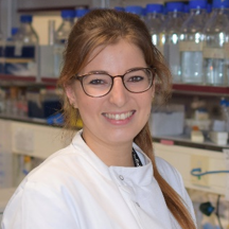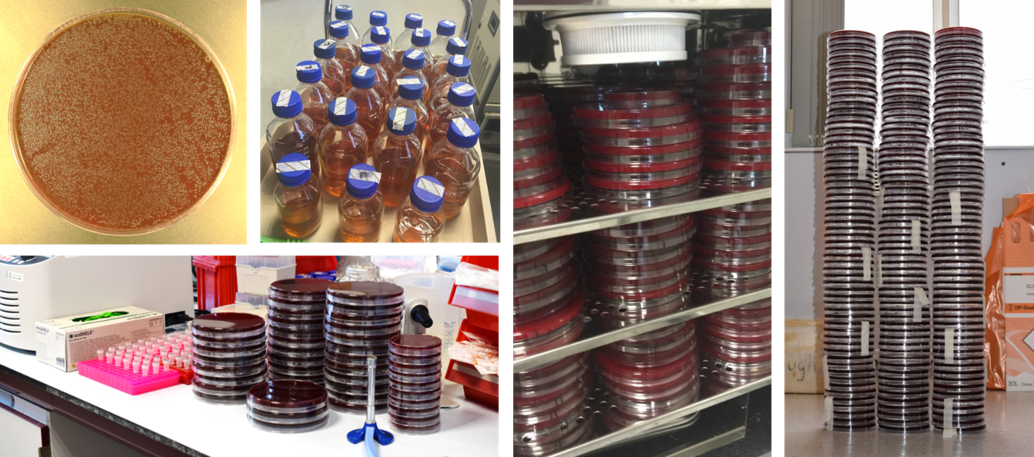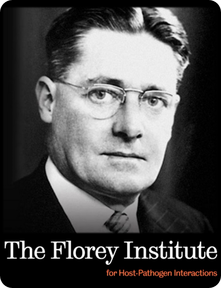| Hi, my name is Carolin and I am a postdoctoral researcher at the Florey Institute at the University of Sheffield. I am a member of Dr Andrew Fenton’s research group, and in our laboratory we focus on the human pathogen Streptococcus pneumoniae. | Caro the postdoc in her natural environment |
To counteract the global threat of antibiotic resistance, it is important to understand the biological mechanisms underpinning resistance in S. pneumoniae. This is why my project aims to identify and characterise novel genes linked to antibiotic resistance. To this end, we performed a large-scale genetic screen in the presence and absence of penicillin. This approach will point out which genes are essential under antibiotic selection, and likely involved in penicillin resistance mechanisms.
So far, I have focused on building the large-scale ‘libraries’ of bacterial cells we need for the genetic screen. As you can tell from the pictures, I needed loads of agar plates to accommodate all the bacterial cells and had to rely on everyone in the lab to help me harvest the cells and prepare them for sequencing.
I am currently waiting for the results of the screen and I am very excited to find out about which genes could play a role in penicillin resistance, so we can further investigate them.


